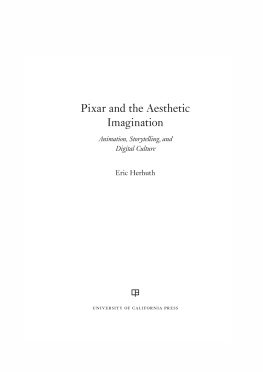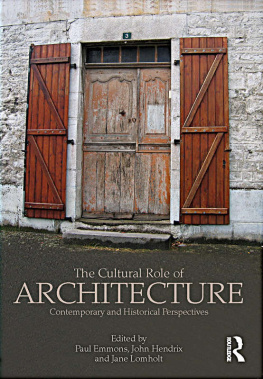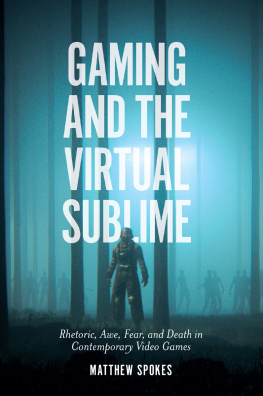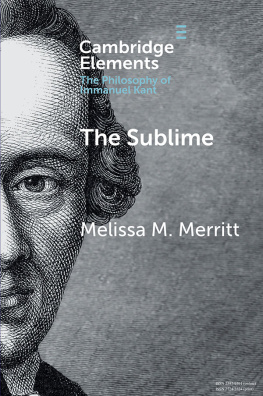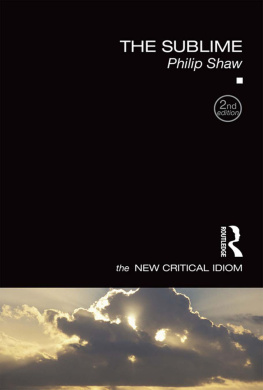
Cultural and Political Nostalgia in the Age of Terror
This book re-examines the role of the sublime across a range of disparate cultural texts, from architecture and art, to literature, digital technology, and film, detailing a worrying trend toward nostalgia and arguing that, although the sublime has the potential to be the most powerful uniting aesthetic force, it currently spreads fear, violence, and retrospection. In exploring contemporary culture, this book touches on the role of architecture to provoke feelings of sublimity, the role of art in the aftermath of destructive events, literatures establishment of the historical moment as a point of sublime transformation and change, and the place of nostalgia and the returning of past practices in digital culture from gaming to popular cinema.
Matthew Leggatt is Lecturer in English and American Literature at the University of Winchester, UK.
Routledge Research in Cultural and Media Studies
For a full list of titles in this series, please visit www.routledge.com.
108 Screen Comedy and Online Audiences
Inger-Lise Kalviknes Bore
109 Media Representations of Anti-Austerity Protests in the EU
Grievances, Identities and Agency
Edited by Tao Papaioannou and Suman Gupta
110 Media Practices, Social Movements, and Performativity
Transdisciplinary Approaches
Edited by Susanne Foellmer, Margreth Lnenborg, and Christoph Raetzsch
111 The Dark Side of Camp Aesthetics
Queer Economies of Dirt, Dust and Patina
Edited by Ingrid Hotz-Davies, Georg Vogt, and Franziska Bergmann
112 The Materiality of Love
Essays on Affection and Cultural Practice
Edited by Anna Malinowska and Michael Gratzke
113 Fashion and Masculinities in Popular Culture
Adam Geczy and Vicki Karaminas
114 Geomedia Studies
Spaces and Mobilities in Mediatized Worlds
Edited by Karin Fast, Andr Jansson, Johan Lindell, Linda Ryan Bengtsson, and Mekonnen Tesfahuney
115 Cultural and Political Nostalgia in the Age of Terror
The Melancholic Sublime
Matthew Leggatt
First published 2018
by Routledge
711 Third Avenue, New York, NY 10017
and by Routledge
2 Park Square, Milton Park, Abingdon, Oxon OX14 4RN
Routledge is an imprint of the Taylor & Francis Group, an informa business
2018 Taylor & Francis
The right of Matthew Leggatt to be identified as author of this work has been asserted by him in accordance with sections 77 and 78 of the Copyright, Designs and Patents Act 1988.
All rights reserved. No part of this book may be reprinted or reproduced or utilised in any form or by any electronic, mechanical, or other means, now known or hereafter invented, including photocopying and recording, or in any information storage or retrieval system, without permission in writing from the publishers.
Trademark notice: Product or corporate names may be trademarks or registered trademarks, and are used only for identification and explanation without intent to infringe.
Library of Congress Cataloging-in-Publication Data
CIP data has been applied for.
ISBN: 978-1-138-22099-7 (hbk)
ISBN: 978-1-315-41149-1 (pbk)
Typeset in Sabon
by codeMantra
As always with a first monograph, there are so many people to thank. Ill start with my family: Pat, Roger, Chris, and Linda for their unwavering support over the years. I want to thank Laura for getting me through this and for helping me bounce so many of these ideas around. I wouldnt have made it over the line without you. Dan Varndell needs a special mention here. Ive gotten so much out of talking to you about all of the issues in this book, and Im forever grateful for the amount of your own time youve given up to help me. Thanks also to Caroline Williams for her advice. In my career to date, Ive been lucky enough to have many people looking out for me, and I owe a great deal to them all. Two people in particular, Murray Pomerance and Linda Ruth Williams, need special thanks for their guidance and support over the years. Finally, a big thanks to all my friends and my colleagues at the University of Winchester for your encouragement.
Id also like to acknowledge that some of this work, particularly sections of Chapter Three, are adapted from an article I published in 2016, and thanks goes to Interdisciplinary Literary Studies for permission to reprint in an altered form. For the original article, please see Matthew Leggatt (2016). Deflecting Absence: 9/11 Fiction and the Memorialization of Change. Interdisciplinary Literary Studies. 18 (2), pp. 203221.
There are laws that most of us take for granted. Physical laws. Laws that, no matter how much we might want to and even at times try to break, still drag us inexorably along with them. Thats all he could think about for a time. An unknown length of time. A time that seemed to collapse and fold in on itself until it became something infinitesimal, unmeasurable on any human scale. He thought about Newton and the apple, he thought about Eve and the apple. How does one measure gravity without feeling its tug on the back of your shirt?
He stared straight ahead, closed his eyes, and took a deep breath inwards. Some people, some mistaken people, called him a thrill-seeker. But this wasnt about the rush. It was an attempt at something he wasnt quite sure of. An attempt to piece together an experience he felt almost certain was unattainable for him. With eyes blinking against the sun, he stretched out his arms and then immediately wondered if that was one of the problems. His arms. Outstretched. Is that how they would have?
The azure blue seemed to wink back at him. Perhaps it was the setting that was wrong. He needed the howl of sirens from the depths below, a sea of people, a sea of specks, looking up in wonder. Himself, right there with them. Or was this chasm the closest he would ever come to looking at the face of death?
He tried to put out of his mind that this was optional, that he had a choice and that, in fact, hed paid money to be stood where he was at that moment, that precise moment, planned and orchestrated. It was like his life. Always playing catch-up. Spending too long planning and not enough time doing. But he had to plan because how else could the experience be total?
The wind gently fluttered his trousers as he edged himself forward, but there was a moment when it seemed to drop out entirely and the blazing heat pinpricked beads of sweat across his forehead. Would this time be any different from the last, he wondered? You never understand it until you are there in the midst of the motion, and then you dont understand it. How can you?
The push comes and suddenly everything else is replaced by that human impulse to fall.
What did he want from this? He wanted to see their faces, indistinguishable on the screen. He wanted to know if they were crying, if they were laughing, if they were horrified, or if they were smiling. He wanted to feel the heat over his shoulder, to see the lick of those furious red flames and the ugly billowing cloud that seemed to grow exponentially. Towering to where? God knows.



